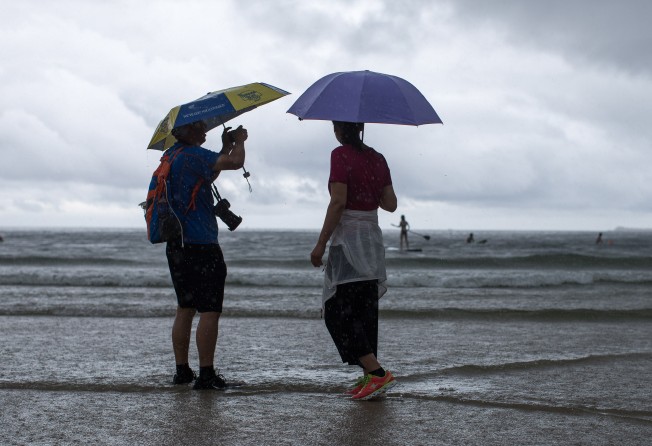Hong Kong can beat climate change if it acts now, with stronger carbon reduction targets in the 2018 policy address

Extreme weather such as boiling temperatures and towering seas are hitting the world due to climate change. Japan is experiencing a record-breaking heatwave while still recovering from one of the worst floods in decades. California has been battling numerous wildfires since July – including the 300,000-acre (121,406 hectares) Mendocino Complex Fire, the largest wildfire in the state’s history.
As a coastal city with a subtropical climate, Hong Kong is especially vulnerable to climate change. Last year’s Typhoon Hato caused HK$8 billion in losses. Yet, we are surprisingly complacent. The government’s 26-36 per cent carbon reduction target for 2030 pales in comparison to the effort by other major economies. Germany, for example, is aiming to cut its carbon emissions by 80-95 per cent by 2050.
Also, Hong Kong’s strategy to switch to natural gas threatens to offset carbon reduction efforts, as it is still a fossil fuel and not clean enough to meet the Paris agreement goal of limiting temperature rise to “well under” 2 degrees Celsius above pre-industrial levels.
We can no longer dally with climate change. Friends of the Earth (HK) urges the government to adopt a “climate first” approach, with a stronger target of 80 per cent carbon reduction by mid-century in the 2018 policy address, to drive its long-term decarbonisation strategies.
To support this, renewable energy should account for at least 10 per cent of the fuel mix by 2030. Instead of solely relying on public participation through feed-in tariffs, the government should also take the lead and install renewable energy equipment on all owned and funded premises, such as public hospitals and aided schools.
Watch: Deadly floods in northeast China
In terms of adaptation measures, an emergency response office on climate change should be established. Recent extreme weather events have shown that interdepartmental coordination is required in disaster planning and management. The government should also collaborate with other cities within the Greater Bay Area to exchange experience and resources, reducing the cost of implementation while enhancing synergy on climate change adaptation measures.
Finally, there is the pragmatic issue of funding climate projects. The government should take advantage of Hong Kong’s position as a world-class financial centre to enable green financing and sustainable investment. At the same time, they should divest from fossil fuels.
Climate change may be inevitable, but we can still limit its severity. If we do not quickly ramp up climate actions, we risk passing down an uninhabitable Hong Kong to future generations.
Wendell Chan, programme officer, Friends of the Earth (HK)